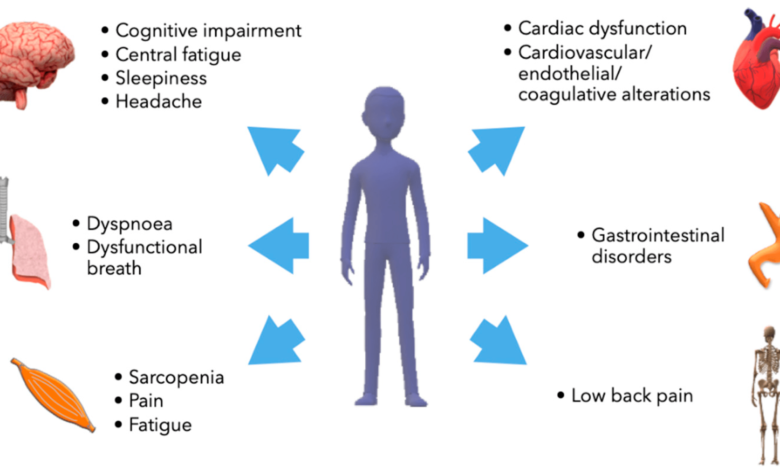Long COVID Treatment: Innovative Approaches to Overcoming Lingering Symptoms

Introduction
As the world continues to recover from the COVID-19 pandemic, many individuals find themselves struggling with a condition known as long COVID. This term refers to the persistence of symptoms long after the acute phase of the virus has passed. In this article, we will explore groundbreaking treatment strategies and the latest insights from the renowned COVID Institute, providing guidance for those seeking relief from long COVID.
What is Long COVID?
Long COVID, also known as Post-COVID Syndrome, affects a significant number of COVID-19 survivors. Symptoms like chronic fatigue, brain fog, breathing difficulties, joint pain, and cardiovascular issues may persist for months or even years after the initial infection. With no universal treatment available, healthcare providers emphasize personalized care and symptom management.
A Holistic Approach to Long COVID Treatment
Long COVID treatment requires a multi-faceted approach tailored to the specific needs of each patient. As research continues to uncover more about this condition, here are some of the most effective strategies used by healthcare professionals to treat long COVID:
1. Targeting Respiratory Complications
Difficulty breathing and shortness of breath are common among long COVID patients. Respiratory therapy, including deep breathing exercises and pulmonary rehabilitation, is crucial for improving lung capacity. These treatments help patients gradually rebuild their respiratory function, alleviating the persistent feeling of breathlessness.
2. Fatigue Management
The overwhelming sense of exhaustion associated with long COVID can be debilitating. The COVID Institute recommends a structured pacing technique called “energy conservation,” which allows individuals to manage their daily activities without overexertion. This approach helps patients balance rest with mild physical activities like stretching and walking.
3. Cognitive Rehabilitation for Brain Fog
Long COVID often impacts cognitive function, leading to issues like memory loss, trouble concentrating, and confusion. Cognitive rehabilitation therapies are specifically designed to sharpen mental abilities through activities like memory games, puzzles, and brain-training exercises. The COVID Institute has developed specialized programs to help long COVID patients reclaim their cognitive strength.
4. Heart Health and Monitoring
For those experiencing chest pain or heart palpitations, regular cardiac monitoring and evaluations are necessary. Cardiologists may prescribe medications to manage heart rate and blood pressure, and in some cases, recommend lifestyle changes such as dietary modifications and increased physical activity.
5. Emotional and Mental Health Care
Long COVID often triggers anxiety, depression, and stress due to the prolonged uncertainty of recovery. Mental health professionals focus on providing therapy, stress management techniques, and in some cases, medication. Cognitive-behavioral therapy (CBT) and mindfulness exercises are commonly used to help patients cope with their mental health challenges.
Cutting-Edge Research from the COVID Institute
The COVID Institute, a global leader in COVID-19 research, has been instrumental in shaping the future of long COVID treatment. Their innovative studies explore how various organs and systems are affected by long COVID, helping to develop targeted treatments.
According to the COVID Institute, personalized treatment plans, which consider the unique symptoms and health history of each patient, are essential for effective recovery. Their latest research focuses on immune responses, inflammation, and post-viral syndromes, which provide deeper insights into long COVID’s underlying causes.
Lifestyle Modifications to Support Recovery
While medical treatments form the core of long COVID management, certain lifestyle changes can also play a critical role in supporting recovery. Consider these natural remedies and adjustments to your daily routine:
- Moderate Exercise: Start with low-impact activities such as gentle yoga or walking. Over time, gradually increase the intensity as your strength improves.
- Nutritious Diet: A diet rich in anti-inflammatory foods, vitamins, and minerals can support your immune system and promote faster recovery.
- Adequate Hydration: Staying hydrated helps reduce fatigue and can enhance overall body function.
- Stress Reduction: Incorporating meditation, deep breathing, or journaling can help manage stress, which in turn can positively impact physical recovery.
FAQs About Long COVID Treatment
Q: How soon can I expect to recover from long COVID?
A: Recovery times vary widely from person to person. While some individuals may recover within a few months, others may experience symptoms for over a year. Patience and ongoing treatment are key.
Q: Can long COVID lead to permanent damage?
A: In some cases, long COVID may cause long-term effects on organs such as the lungs, heart, and brain. However, research from institutions like the COVID Institute is helping identify treatments that can potentially reverse some of these effects.
Q: Are there specific medications for long COVID?
A: While there isn’t a specific medication designed for long COVID, various treatments are used to manage individual symptoms, such as fatigue, inflammation, and respiratory issues.
Conclusion
As research from the COVID Institute and other healthcare organizations continues to evolve, so do the treatments available for long COVID. Managing long COVID requires a combination of medical intervention, self-care, and a proactive approach to health. If you’re dealing with persistent symptoms, speak with a healthcare professional to explore your treatment options and start your path to recovery today.




